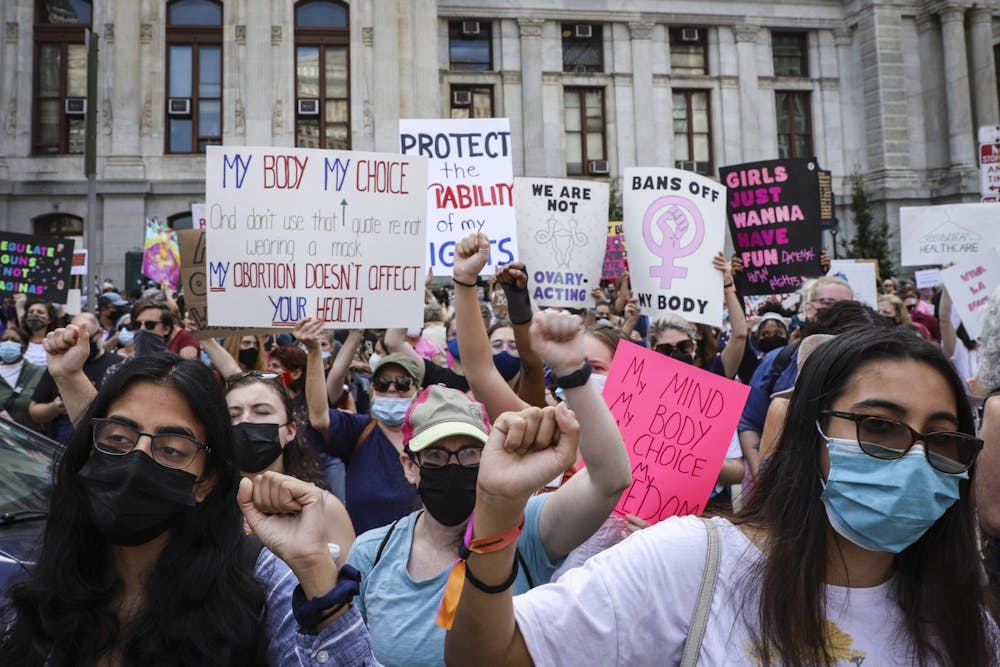On Saturday, Penn students and doctors at the Hospital of the University of Pennsylvania joined about 1,000 protesters who marched from the Rocky Steps at the Philadelphia Museum of Art to City Hall demanding abortion rights.
The march was organized by several Philadelphia community members, including Perelman School of Medicine students. “Bans Off Our Bodies” rallies for abortion rights have been sparked across the country by the recent Texas abortion law that went into effect on Sept. 1, according to NPR. The Texas law bans abortions after a fetal heartbeat is detected, which is usually about six weeks into a pregnancy.
Protesters began at the Rocky Steps in front of the Philadelphia Museum of Art and made their way to City Hall, where a panel of abortion rights advocates gave speeches, including Jessica Chen, a resident at HUP training in obstetrics and gynecology.
Chen said that at six weeks, many people do not realize they are pregnant yet. This is because “the majority of people miss a period at around four weeks and then maybe are able to get a pregnancy test a few weeks after that,” she said.
“The process of getting an abortion by the time one is at six weeks is really, really challenging logistically,” Chen said.
The abortion law also allows citizens to sue anyone who helps support someone in getting an abortion, including abortion providers, according to NPR.
College first year Riley Guggenhime, a member of Penn Democrats who was at the march, said she was excited to finally be able to attend an in-person protest. As a native Californian, Guggenhime said she was used to people having safe access to abortions and is concerned that not all people would have this privilege.
“It is really scary that this [Texas abortion] law is going to especially impact low-income people and people of color who can’t afford to fly out of state to have access to a safe abortion,” she said.
RELATED:
Penn Students mourn Ruth Bader Ginsburg's Death, brace for Trump's Supreme Court Nomination
Local activists pressure city to address UN report alleging undue force by Phila. police
College first year Liam Hoare, who also attended the march, said he believes it is important for women to be the leading voice when it comes to the issue of abortion.
“As a man, I see this as not my place at all. Women should get the choice on what to do with their bodies,” he said.
Hoare brought a poster to the protest that read: “Abortion, never an easy choice, sometimes the right choice, always a woman’s choice.”
At the march, Pennsylvania State Senator Vincent Hughes (D-Philadelphia) spoke about the importance of voting in the fight for abortion rights.
“Reproductive freedom, our health care, and abortion is on the ballot every six months,” Hughes said. “The U.S. Senate is on the line next year, governor's race on the line next year, control over the Pennsylvania House and Senate on the line next year.”
Chen said another way that protesters and people can help the movement is by supporting clinics and organizations, like the Philadelphia–based Women’s Medical Fund, that promotes abortion rights and health.
“If you can’t donate right now, volunteer. Clinics around the city are always looking for volunteers to help do things like escort patients into clinics," Chen said.









